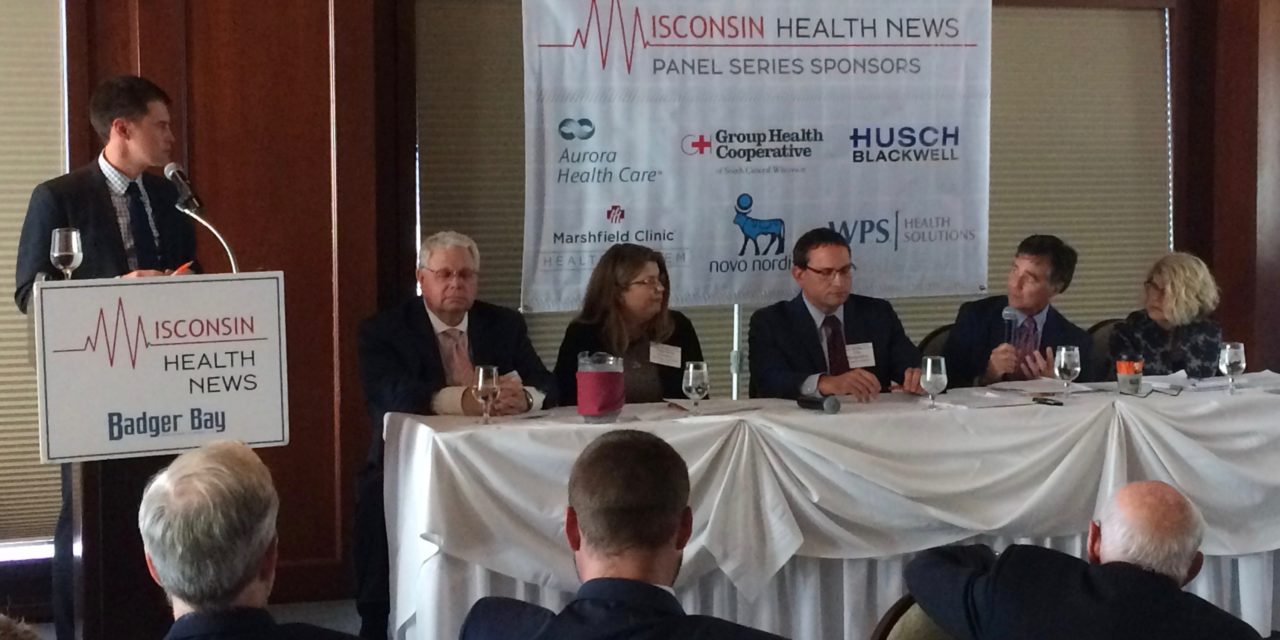
If the state expands Medicaid, money should go to healthcare, panelists say

As Gov. Scott Walker and his Democratic challenger Superintendent Tony Evers spar over whether the state should take federal funding to expand Medicaid, healthcare lobbyists want the state to spend any new money from such a change on healthcare.
Wisconsin Hospital Association CEO Eric Borgerding predicted at a Wisconsin Health News event Tuesday that if Evers is elected governor, the Legislature will likely receive a budget bill that expands the program.
If Republican lawmakers continue to hold majorities in the Assembly and Senate, they would be “forced to pull it out,” he said. He estimated that the state would receive money from “the federal government to the tune of about $200 million per year.”
“That’s a lot of money that would have to be unwound from the budget,” he said, adding that rejecting expansion in the budget would then be “very, very difficult to do.”
If the Legislature is debating Medicaid expansion next budget, WHA and other healthcare providers will push that the extra dollars go toward healthcare, he said.
“They’re not to be used for whatever else, you can take your pick, is in the budget,” he said. “Those dollars are for healthcare.”
Wisconsin Association of Health Plans CEO Nancy Wenzel echoed Borgerding’s call.
“Resources need to be committed to healthcare,” she said. “They need to be committed to doing what we can to address costs and working collaboratively to bend the cost curve.”
Stephanie Harrison, Wisconsin Primary Health Care Association CEO, stressed that the discussion was “super hypothetical at this point.” But they’re interested in investing in social determinants, like housing and early childhood education, that are tied to health outcomes.
John Sauer, LeadingAge Wisconsin CEO, noted that Medicaid also provides services to the elderly.
“As we talk about are we going to accept the expansion of Medicaid and the funds that might come from that, it’s just kind of a reminder I think to all of us that on the long-term care side, we need to fix some things,” he said. “We’ve redirected people from higher cost services to lower cost services, but we’ve done so by really being very stingy on the reimbursement side to the providers. That coupled with the workforce crisis is landing us in a bad spot.”
This article first appeared in the Wisconsin Health News daily email newsletter. Sign up for your free trial here.





